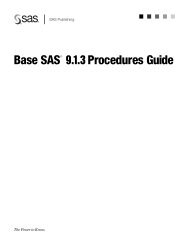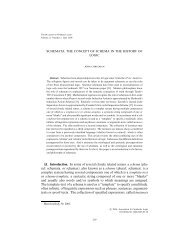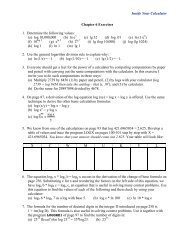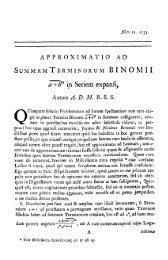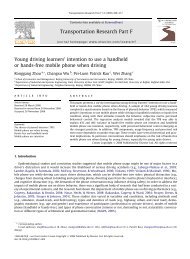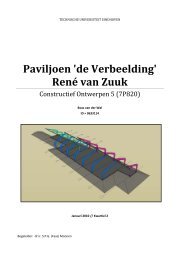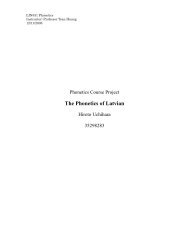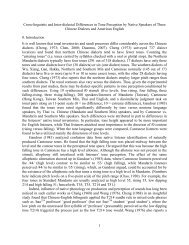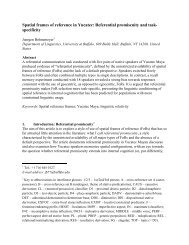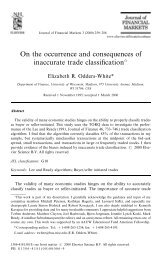A generic framework for Arabic to English machine ... - Acsu Buffalo
A generic framework for Arabic to English machine ... - Acsu Buffalo
A generic framework for Arabic to English machine ... - Acsu Buffalo
Create successful ePaper yourself
Turn your PDF publications into a flip-book with our unique Google optimized e-Paper software.
3.5. WHY WE USE RRG AS THE LINGUISTIC MODEL<br />
3.5.2 The lexical representation of verbs and their arguments<br />
The approach <strong>to</strong> the depiction of the lexical meaning of verbs which we will adopt is<br />
lexical decomposition, which involves paraphrasing verbs in terms of primitive elements<br />
in a well-defined semantic metalanguage. As a simple example of the mechanism of<br />
lexical decomposition, ‘kill’ can be paraphrased in<strong>to</strong> something like ‘cause <strong>to</strong> die’, and<br />
then ‘die’ can be broken down in<strong>to</strong> ‘become dead’, Thus the lexical representation<br />
of ‘kill’ would be something like ‘x causes [y become dead]’ (Van Valin and<br />
LaPolla 1997). A system of lexical representation should include a way of expressing the<br />
fact that the subject of ‘die’ and the object of ‘kill’ are the same argument semantically.<br />
There are many verbs pairs like this, and in many cases the relationship between them<br />
is overt. Examples include ‘sink’, as in ‘the boat sank’ and ‘the <strong>to</strong>rpedo sank the boat’,<br />
where boat is the subject of intransitive ‘sink’ and the object of transitive ‘sink’ (Van Valin<br />
and LaPolla 1997). Another example is the predicate ‘cool’, which can take three <strong>for</strong>ms,<br />
one adjectival and two verbal: ‘The soup is cool’, ‘the soup is cooling’ and ‘the wind<br />
cooled the soup’. Thus, there seems <strong>to</strong> be a pattern of intransitive verbs whose subjects<br />
are identical <strong>to</strong> the objects of their transitive counterparts. There are cases, however,<br />
when the intransitive-transitive alternates do not have the same lexical <strong>for</strong>m, as in ‘die’<br />
and ‘kill’, or ‘receive’ and ‘give’. An adequate theory of lexical representation should<br />
be able <strong>to</strong> capture these relationships, and lexical decomposition provides a promising<br />
method <strong>for</strong> doing it. There are many theories of lexical decomposition, which differ<br />
in terms of how fine-grained they are. It is necessary <strong>to</strong> find the right level of detail,<br />
one which allows the expression of certain important generalizations but which also has<br />
representations whose differences have morphosyntactic consequences. Thus, arriving<br />
at a decompositional system is a compromise between the demands of semantics (make<br />
all necessary distinctions relevant <strong>to</strong> meaning) and those of syntax (make syntactically<br />
43



